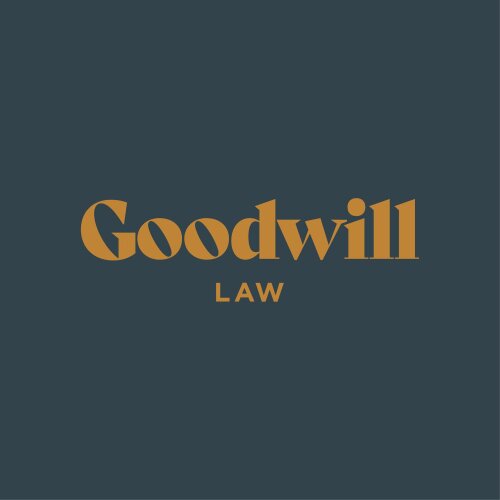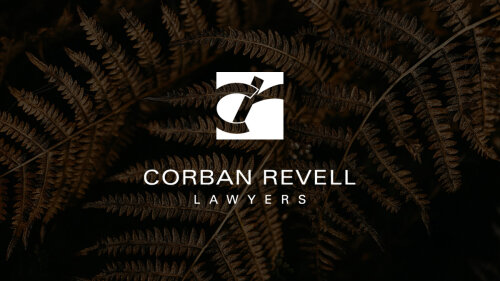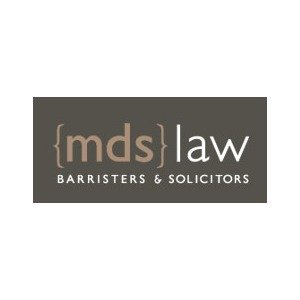Best Licensing Lawyers in New Zealand
Share your needs with us, get contacted by law firms.
Free. Takes 2 min.
Or refine your search by selecting a city:
List of the best lawyers in New Zealand
About Licensing Law in New Zealand
Licensing in New Zealand encompasses a wide range of legal permissions required for various activities and businesses. Licensing laws ensure that individuals and businesses comply with established regulations to maintain public safety, order, and fairness in trade and industry. Common types of licenses include those for alcohol sale, broadcasting, intellectual property, and professional services. The law addresses who can apply for licenses, the criteria for granting them, and the responsibilities of license holders.
Why You May Need a Lawyer
Engaging a lawyer may become necessary in several situations involving licensing in New Zealand. Such scenarios include applying for a license in a regulated industry, ensuring compliance with licensing requirements, facing a refusal or revocation of a license, dealing with disputes over intellectual property licensing, or addressing breaches in licensing conditions. A legal expert can provide tailored advice, negotiate on your behalf, and represent you in judicial or administrative proceedings if needed.
Local Laws Overview
Key aspects of New Zealand's licensing laws include the Sale and Supply of Alcohol Act 2012, which mandates a license for selling alcohol, and the Resource Management Act 1991, which may require resource consents for business activities impacting the environment. The Copyright Act 1994 and associated intellectual property laws regulate how creative content can be licensed. Each law establishes specific conditions and requirements that must be met to obtain and maintain a license, and these vary depending on the type of license and industry in question.
Frequently Asked Questions
What is a licensing agreement?
A licensing agreement is a legal contract between a licensor and a licensee, detailing the rights and responsibilities of both parties concerning the use of a license.
When is a liquor license needed?
A liquor license is required for any business intending to sell or supply alcohol. This includes bars, restaurants, clubs, and special events offering alcoholic beverages to the public.
How can I apply for an alcohol license?
Applications for alcohol licenses are typically submitted to the local District Licensing Committee, along with necessary documentation and fees. The process involves approvals from the Police and the Medical Officer of Health.
What happens if my license application is declined?
If your application is declined, you may seek a review or appeal the decision, often requiring legal advice to address any deficiencies or issues highlighted by the licensing authority.
Can licenses be transferred to another party?
In many cases, licenses are not automatically transferable; a new application may be necessary for the new entity wishing to carry out the licensed activity.
What are my rights if someone infringes on my intellectual property?
You may pursue legal action to enforce your rights, potentially leading to injunctions or financial compensation. Consulting with an IP lawyer can offer guidance on the best course of action.
What are the penalties for operating without a required license?
Penalties can include fines, seizure of goods, or ceasing operations, varying by the type of licensing violation committed.
How do licensing laws impact startups?
Startups must navigate applicable licensing laws to ensure compliance, especially when involved in regulated industries such as food production, retail, or technology.
How long does it take to process a license application?
Processing times can vary widely depending on the type of license and completeness of the submitted application, ranging from a few weeks to several months.
What is the role of the Intellectual Property Office of New Zealand (IPONZ)?
IPONZ manages trade marks, patents, designs, and other licensing rights, offering resources and guidance on protecting intellectual property items in New Zealand.
Additional Resources
Consider exploring the following resources for more information on licensing in New Zealand:
- The New Zealand Ministry of Business, Innovation and Employment (MBIE)
- The New Zealand Intellectual Property Office
- The New Zealand Law Society
- Local District Licensing Committees
- Business.govt.nz
Next Steps
If you need legal assistance in licensing, start by consulting with a lawyer specializing in your specific area of need. Gather all necessary documents and information relating to your licensing issue. Consider reaching out to relevant industry associations for guidance. Ensure you understand the timeframes involved and any costs that may be incurred. Taking these steps can help you navigate the complexities of licensing law effectively and efficiently.
Lawzana helps you find the best lawyers and law firms in New Zealand through a curated and pre-screened list of qualified legal professionals. Our platform offers rankings and detailed profiles of attorneys and law firms, allowing you to compare based on practice areas, including Licensing, experience, and client feedback.
Each profile includes a description of the firm's areas of practice, client reviews, team members and partners, year of establishment, spoken languages, office locations, contact information, social media presence, and any published articles or resources. Most firms on our platform speak English and are experienced in both local and international legal matters.
Get a quote from top-rated law firms in New Zealand — quickly, securely, and without unnecessary hassle.
Disclaimer:
The information provided on this page is for general informational purposes only and does not constitute legal advice. While we strive to ensure the accuracy and relevance of the content, legal information may change over time, and interpretations of the law can vary. You should always consult with a qualified legal professional for advice specific to your situation.
We disclaim all liability for actions taken or not taken based on the content of this page. If you believe any information is incorrect or outdated, please contact us, and we will review and update it where appropriate.
Browse licensing law firms by city in New Zealand
Refine your search by selecting a city.













